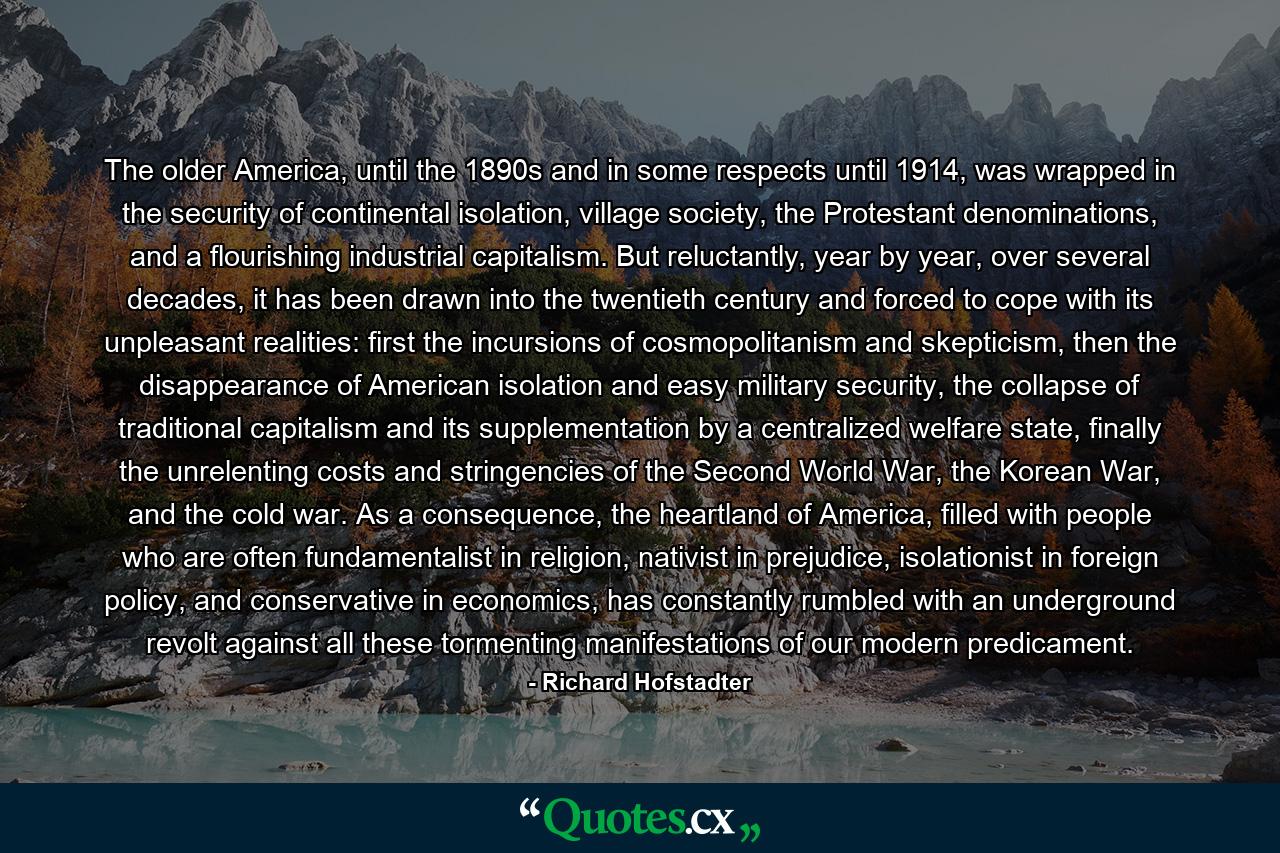The older America, until the 1890s and in some respects until 1914, was wrapped in the security of continental isolation, village society, the Protestant denominations, and a flourishing industrial capitalism. But reluctantly, year by year, over several decades, it has been drawn into the twentieth century and forced to cope with its unpleasant realities: first the incursions of cosmopolitanism and skepticism, then the disappearance of American isolation and easy military security, the collapse of traditional capitalism and its supplementation by a centralized welfare state, finally the unrelenting costs and stringencies of the Second World War, the Korean War, and the cold war. As a consequence, the heartland of America, filled with people who are often fundamentalist in religion, nativist in prejudice, isolationist in foreign policy, and conservative in economics, has constantly rumbled with an underground revolt against all these tormenting manifestations of our modern predicament.
